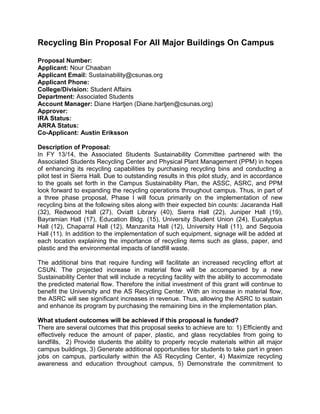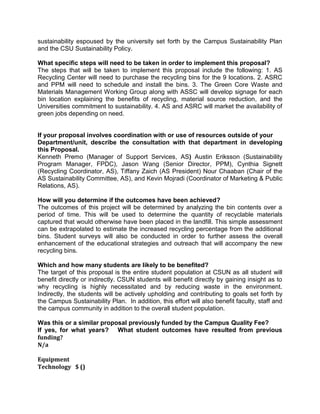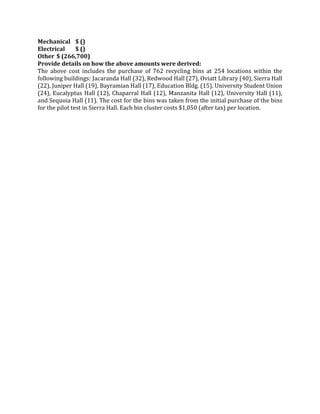This proposal seeks funding to purchase and install recycling bins in 13 major campus buildings to reduce waste sent to landfills and educate students on recycling. Phase 1 would provide 762 bins in locations like dorms, classrooms and the student union. Assessing bin contents would determine increased recycling rates. Additional recycling would generate revenue for the Associated Students Recycling Center to expand the program and hire more student workers, while achieving sustainability goals.


